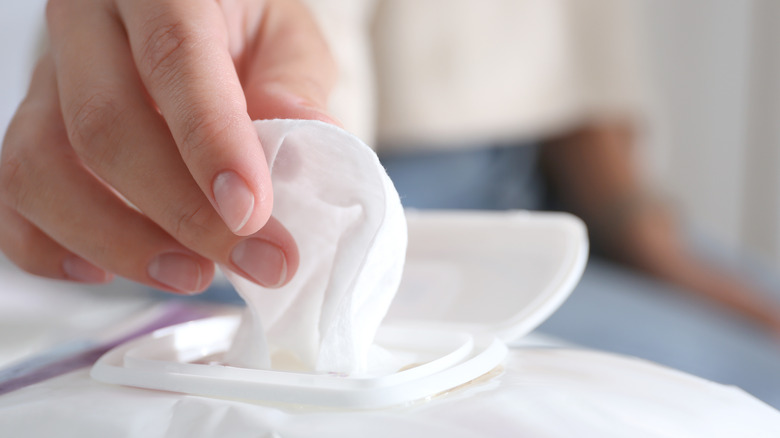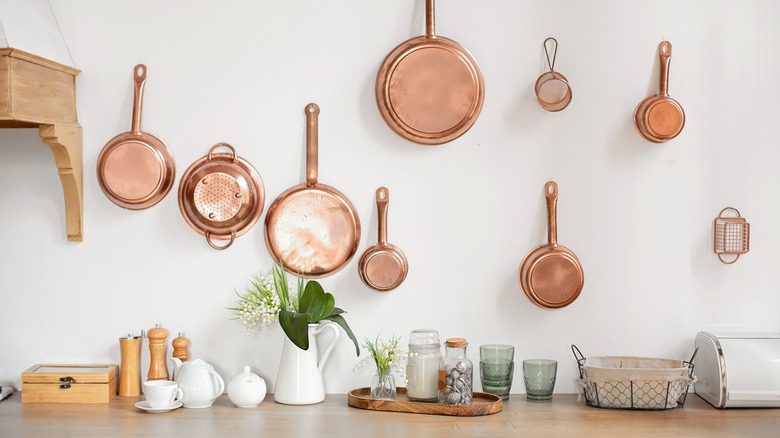Using Disinfecting Wipes On This Type Of Metal Isn't The Best Idea
Disinfecting wipes can be incredibly convenient around the house and help you easily keep surfaces, appliances, and cookware clean. However, there can be too much of a good thing. Although they're safe to use on stainless steel, household items that are made of copper and aluminum are among those that should stay away from disinfecting wipes. Copper and aluminum are porous, and disinfecting wipes that contain chlorine, bleach, or quarternary ammonium can break down the surface of these metals and cause corrosion. If used on copper pipes, for example, the chlorine often present in disinfecting wipes could corrode the surface and cause pinhole leaks, making your pipes unusable.
Although it's fine to use disinfecting wipes on copper and aluminum surfaces occasionally, don't make it a habit. It's best to look for alternative solutions for cleaning copper and aluminum surfaces to prevent corrosion and damage. Instead of using disinfecting wipes, opt for a simple solution of dish soap and water if you're looking for the best way to clean your copper table top, copper pots and pans, or aluminum household items. Gently wiping these surfaces with soap and water is all that's needed to keep copper and aluminum clean without causing corrosion. Alternatively, consider using a store-bought copper cleaner or aluminum cleaner to keep these household items clean. You can also try a cleaning tarnish with a combination of lemon and salt, although you'll want to rinse and dry the surface thoroughly once you're finished.
Things to avoid when cleaning copper and aluminum
Although you can use soap and water on these metals, it's best not to put copper or aluminum in the dishwasher since doing so can cause damage. Copper shouldn't soak for too long and shouldn't stay wet for extended periods. Items made from aluminum may develop limescale if left in the water. Instead of using the dishwasher, wash aluminum items such as water bottles by hand.
In addition to avoiding the dishwasher, keep in mind that even natural products can cause damage to these metals. Although there are many ways to use vinegar to keep your house clean, it's not ideal for use on copper or aluminum. While vinegar can clean tarnished copper and aluminum, it can also damage the metal due to its acidity. You may want to use diluted vinegar if the metal is in particularly bad shape, but you should do so sparingly and be careful how you go about it. Be gentle and wash it off quickly if you decide to use it. When in doubt, simply use soap and water instead.

